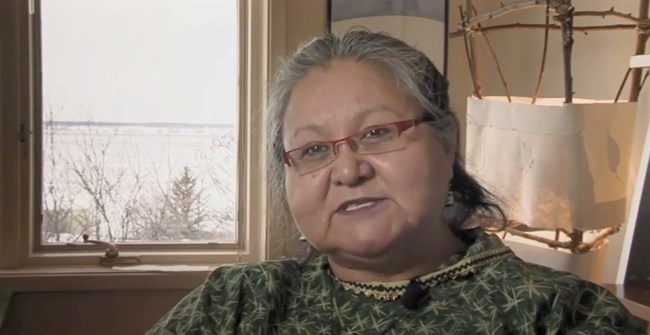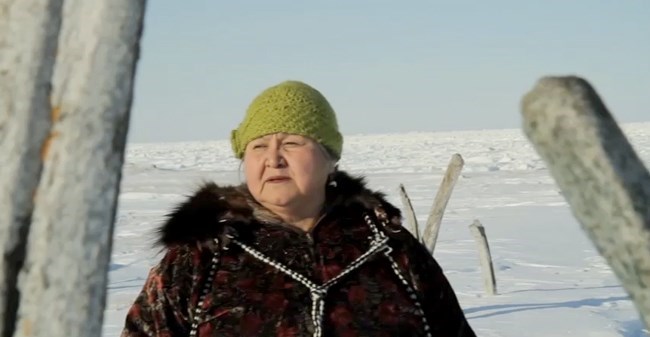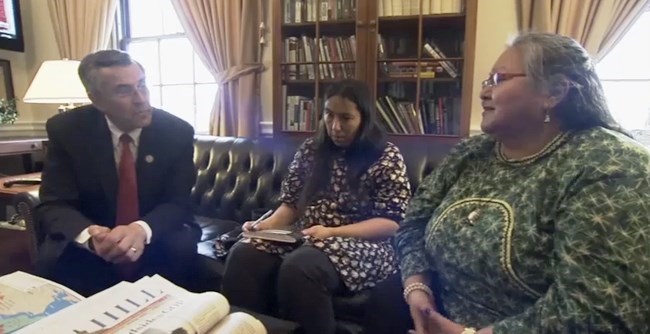 |
Caroline Cannon grew up in a close-knit, Inupiat community of Point Hope, Alaska, a small village of fewer than 700 people located 200 miles north of the Arctic Circle.. There, children are taught at an early age to take care of each other and to respect the natural environment that provides them with food, clothing and shelter. In Point Hope, the ocean remains frozen up to six months of the year. Her people are whalers, as their ancestors were before them and, to survive, they rely on the biodiversity of their region such as whales, polar bears, fish and migrating birds. "I always said to my ancestors, they chose the right place," she explains in The Arctic Garden, produced by Tom Dusenbury and narrated by Robert Redford. "We depend on the ecosystem. We have the land and the sea that's been bountiful and provides." When gas prices started to soar a few years ago, it sparked a huge movement to allow oil companies to gain access to untapped oil reserves in the Arctic region. The federal government presented a plan to open up offshore oil and gas leases, Cannon and her people saw this as a threat to their lifestyle.
"We have to take it seriously because one incident and that's all it takes," said Cannon in the film. "One mistake, a blowout, and we saw what happened at the Gulf of Mexico." In the frozen Arctic, there are no measures in place to deal with potential oil spills and with the ocean frozen so much of the year, it could take several months for crews to even stem the flow of a leak beneath the ice. The result of such a spill could devastate the area's biodiversity, which would destroy the resources, and the way of life, of the people who sustained by the ecosystem.
 |
For decades, Cannon had been a leader in the Inupiat community and even served as president of her native village. When the drilling was proposed, the village elders looked to her to represent her community in an effort to stop the drilling. Cannon persevered through hundreds of governmental meetings in Alaska and Washington, D.C., telling the stories of her people and urging lawmakers to stop the proposed drilling. "Caroline Cannon is one of the most powerful and inspirational voices that we have in this fight," explained Betsy Beardsley, of the Alaska Wilderness League, a non-profit organization to protect the state's wild lands from industrial threats. "Caroline has a way of painting a picture of life in the Arctic and the centuries-old whaling tradition for people that will never go there.
 |
Cannon's hard work reaped rewards for her community when a 2009 Federal Court ruling put an end to future lease sales in the artic. This year, she was awarded the 2012 Goldman Prize, which honors grassroots activists who work toward environmental goals throughout the world. Her message continues to ring loudly, thousands of miles from her Alaska home. "Just recognize us for who we are," she said. "I carry the message in my heart because I know that when you follow what's been instilled in you, you can't go wrong." The Artic Garden, a documentary film that chronicles the struggle of an Alaskan woman who fights proposed offshore oil drilling that threatens her environment is a finalist in the 8th Annual MY HERO International Film Festival. The film is available on the MY HERO web site, MY HERO Screening Room - The Arctic Garden.
Page created on 8/6/2014 10:55:24 AM
Last edited 1/5/2017 9:09:14 PM
